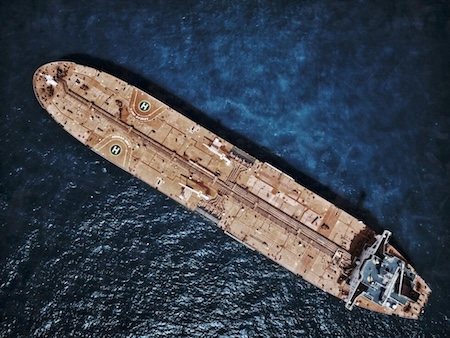
On April 28, 2025, the U.S. Department of the Treasury’s Office of Foreign Assets Control (“OFAC”) announced sanctions targeting three vessels and their owners for providing support to Ansarallah, otherwise known as the Houthis. OFAC designated three vessels—Al Numan, Blue Lagoon, and Chem—along with their respective owners, for their role in facilitating the shipment of oil derivatives to Houthi-controlled areas in Yemen. This latest action continues OFAC’s recent campaign to utilize sanctions in an attempt to disrupt the financial and logistical networks supporting those entities causing instability within the region. he sanctions also extended to Cielo Maritime SA, a Panama-based company managing the Al Numan, and two individuals, Muhammad ‘Abd Al-Muttalib Kalash and Sami ‘Abd Al-Muttalib Kalash, who manage the Blue Lagoon and Chem through unregistered entities in Dubai, United Arab Emirates.
The vessels facilitated the delivery of oil derivatives—specifically liquid petroleum gas and gas oil—to Houthi-controlled ports in the Red Sea. The Houthis ultimately sell these products on the black market throughout the region and the revenue has ultimately brought several million dollars to the Houthi organization. The Houthis then use the funds on its military activities, including its attacks on commercial ships passing through the Red Sea and into the Suez Canal. Furthermore, OFAC found that the vessels were operating in coordination with Sa’id al-Jamal, a previously sanctioned Houthi financial facilitator whose network supports Iran’s Islamic Revolutionary Guard Corps.
OFAC utilized its powers under Executive Order 13224, which targets terrorist organizations and their supporters. The Houthis, as you may be aware, are a U.S.-designated terrorist organization. While OFAC does maintain a separate Yemen Sanctions Program, all of the recent actions that effectively focus on the Yemeni region have been made under the auspices of the Countering Terrorism Sanctions Regulations, which includes EO 13224, among others. This is almost certainly due to the fact that the Houthis are not solely located within the bounds of Yemen, as the organization has roots throughout the Middle East. Furthermore, the Houthis are ultimately a part of Iran’s network of proxies. Putting the geopolitical aspects aside, the designations under this Executive Order ultimately benefit from an expanded list of General Licenses. There are currently 28 standalone General Licenses under this program, and several more that are codified within statutes, which provide authorizations and carve outs from the sanctions for certain types of transactions or activities.
For compliance professionals, it is especially noteworthy that these deliveries were made shortly after the expiration of a wind down period authorized by General Licenses 25A and 26A. That GLs allowed deliveries of certain petroleum products to these ports following the redesignation of the Houthis as a Foreign Terrorist Organization. The authorizations of these GLs expired April 4, 2025. Each of these vessels delivered its cargo within two weeks following the deadline. As you can see, these deadlines are FIRM. Completing a transaction even a few minutes after expiration risks serious consequences. Violations can lead to enforcement actions—or worse, as we see here, as each of these entities were formally designated themselves.
As I stressed recently, it is time for organizations to ensure they have a detailed understanding of their activities in Yemen and throughout the Middle East region at large. Tensions continue to escalate and OFAC continues to be especially active here, especially with regards to any connections to Iran. Companies should have robust due diligence processes that include active monitoring and/or periodic refreshes. These processes should not only include a screening of the specific entity against relevant compliance lists, but also a screening of the beneficial ownership of said entities.
Companies should also focus on their products and supply chains. Companies that deal with oil and gas commodities may be especially susceptible here, as any involvement in deliveries to the Houthis, even unwittingly, could risk significant repercussions. Focus compliance efforts on origin, destination, and intermediaries in involved in these types of transactions. Additionally, be sure to train staff on identifying potential red flags or warning signs—such as surprise ship-to-ship transfers or unusual routings—that may suggest a transport is being re-rerouted to a prohibited destination. Consider the use of end-user certifications and other contractual representations where necessary.
Even non-U.S. companies should assess their exposure to potential sanctions risks. The recent designations highlight the risks that international companies may face as the two entities designated in this recent action were not U.S. Persons, but rather were based in the UAE and Panama. Rather than facing an enforcement action, which is bad enough, the entities were formally designated themselves and now find themselves on the SDN List.
